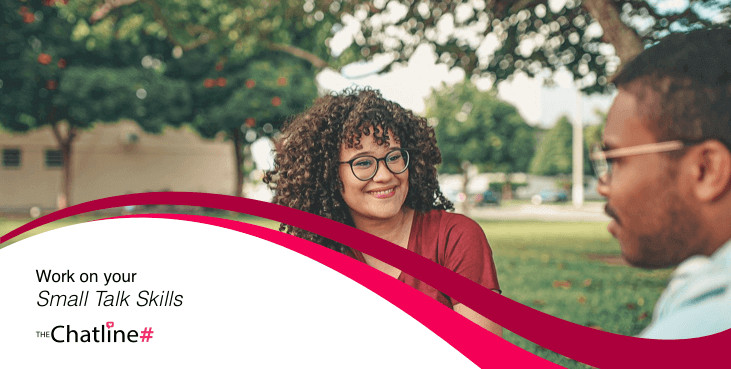Connecting with people and cultivating relationships can enrich and add interest to life. However, for those who tend towards introversion, it can also be a challenge. Here are some gentle ways to develop social skills in a rewarding and healthy manner.
1. Find Social Opportunities That Excite You.
Because the world is often geared towards extroverted individuals, some social engagements may not appeal to those on the introverted side. Many assume that being socially active means going to clubs and dancing the night away, but that may not be everyone’s preference.
To overcome this, it’s important to identify the topics, activities, or interests that matter to you. Seek out activities that let you engage with like-minded individuals who share your passions. For example:
- If you love animals, you could consider volunteering at local shelters.
- If you are invested in a particular social cause, look for groups that support that issue.
- If you enjoy indoor plants, there are online groups you can connect with and potentially meet up with to share your passion for indoor flora.
2. Take It Slowly.
If you haven’t been actively socializing for quite some time, don’t try to jump into all the events you think you may be interested in at once. Instead, set a small and manageable goal for yourself to connect with other people. Starting by attending a single monthly meeting with a group focused on a topic of interest to you can help you connect with attendees and find people you connect well with.
If you’re already spending a lot of time outside, but don’t engage with people often, try setting small goals of asking others about their day or themselves in some way to start a conversation. Small displays of interest in others and polite small talk are great ways to ease back into more social situations. After interacting with people in a light manner, you can choose to invest more time and energy in those with whom you feel more connected.
You could begin by asking more personal questions and sharing more about yourself too. If you connect well, you may find an activity you both enjoy doing together. Remember that this process takes time, and there’s no need to rush forming a bond with anyone. Healthy connections with people are more like lifelong efforts and require a slow and steady approach.
3. Show Interest in Others.
Being social can sometimes make you feel like you need to be the most interesting person in the room to survive, but that’s not true. It’s also not true that the loudest person in the room is the most interesting. If you want people to enjoy speaking with you, start by showing interest in others. Actively pay attention to what they’re saying.
If you listen to understand, rather than just respond, you’ll ask more questions on the topic, and the conversation will flow naturally. It’s still important to share relatable things about yourself and give the other person a chance to ask you questions in return.
If you view conversations in this way and show genuine curiosity without judgment towards others, people will enjoy speaking with you and become curious about you due to your attentive listening skills.
4. Catch Up With Existing Connections.
Socializing is often perceived as centering around meeting new people and being confident enough to walk into any room and start a conversation with someone new. However, this isn’t the only aspect of sociability that matters. If the idea of going out to meet new people is daunting, consider looking at your existing relationships to see who you could invest more time in or reconnect with.
Often, busy people end up disconnecting from relationships because the relationship fades away over time. It’s not easy to maintain relationships, but nurturing long-term relationships throughout one’s life can be a rewarding experience. If you decide to reconnect with someone who has known you for a long time, it may also lead you to meet other people.
This is because spending more time with those you already know in social settings will allow you to meet other people they know too.
5. Take That Class You Always Wanted To.

We all have skills we dream of having but never take the leap to develop, whether due to lack of finances or time, or fear of failure. However, investing in yourself is a great way to build confidence and acquire new skills.
Taking on a new challenge is never easy, but the most interesting people in the world have that in common; they took on great challenges. Whether you want to learn an instrument or a new language, pursuing your dreams and learning the skills you always wished you had is an excellent way to meet like-minded people who share your interests.
It’s also a fantastic way to build your confidence and gather more interesting stories in your life. By doing challenging things, we learn more about ourselves and the world around us, and we develop more empathy for others who are also struggling with something. Plus, we can learn valuable skills that other people find interesting.
6. Work on Your Small Talk Skills.

Small talk can get a bad rap because it can seem pointless to talk about the weather or how slow the train is running today, but it’s the small step that needs to be taken for deeper conversations to ever be possible. To make yourself and your conversation partner feel more at ease, and therefore more likely to engage in a longer conversation, work on small talk topics and questions that you feel comfortable with.
Small talk is also an important step in deciding whether you like the person you’re speaking to beyond superficial assumptions made from their appearance. You can tell if someone is open and friendly or perhaps closed off by having a bit of small talk. You can also detect if someone can become mean or hostile by their attitude and manner of speaking.
To develop your small talk skills, focus on amicable questions like “What drew you to the line of work you’re in?” or chat politely about events happening in the location you’re in. A topic to avoid is someone’s appearance, which can be too personal for most first-time encounters. Common topics like the weather, the place you’re in, or the late public transport you’re waiting for are all fair game.
7. Be True to Yourself.
We often get caught up worrying about whether other people like us and trying to find ways to impress them, while completely forgetting the most important part; whether or not we like them. It’s not a one-way street in any relationship, and you should never be the only one seeking approval in any social situation.
By remembering that you get to decide if you like someone too and whether they are worth your time, you can take a lot of pressure off your shoulders, especially if you are a bit of a people pleaser. Social situations can be exhausting if you feel like you have to constantly work for other people’s approval and find ways to make them like you.
Holding onto your natural right to decide whether or not you like someone can prevent you from wasting your energy on second-guessing everything you do and allow you to invest your energy in having a good time.
8. Balance Your Social Life and Alone Time.
Those who struggle with socializing are generally on the introverted side, which means our alone time is precious. It’s not just precious because we enjoy it, but because it nurtures us. Introverted people love to delve deeply into our world, our interests, and our own company.
If you resonate with these statements, remember to come back into your comfort zone after adventuring out of it to refresh your emotional and psychological energy reserves. Balancing your need to spend time in your own company with the relationships you want to forge in your life will help you be more energized to give 100% when you are in social settings because you’ve refueled yourself first.
Biologically speaking, the heart has to feed itself before it can feed the rest of the body, and this is true for people too. Make sure you feed your own heart and mind before you try to feed other people’s souls.

